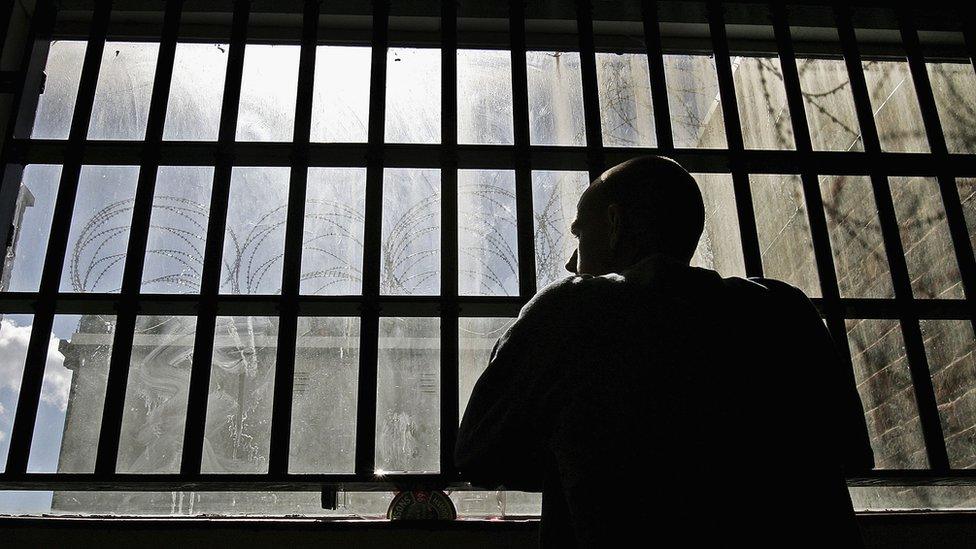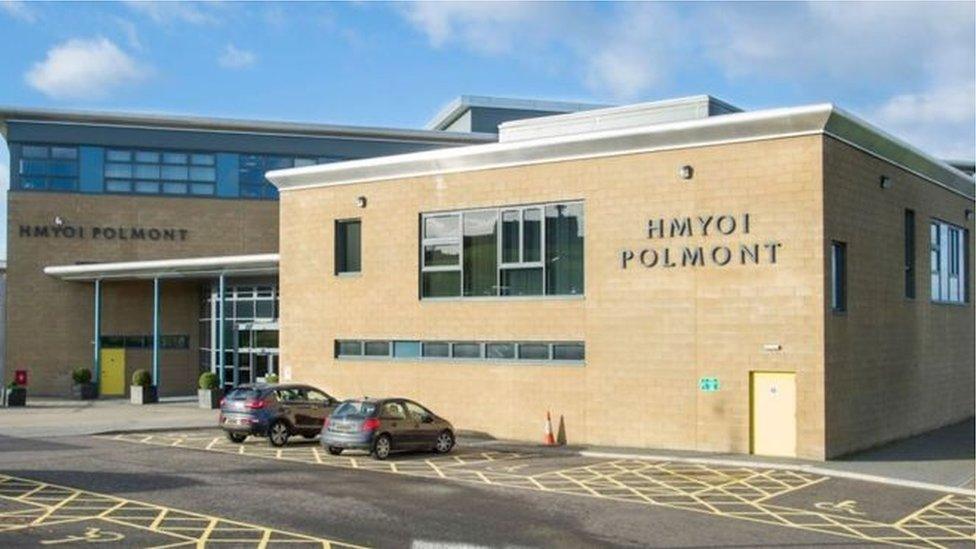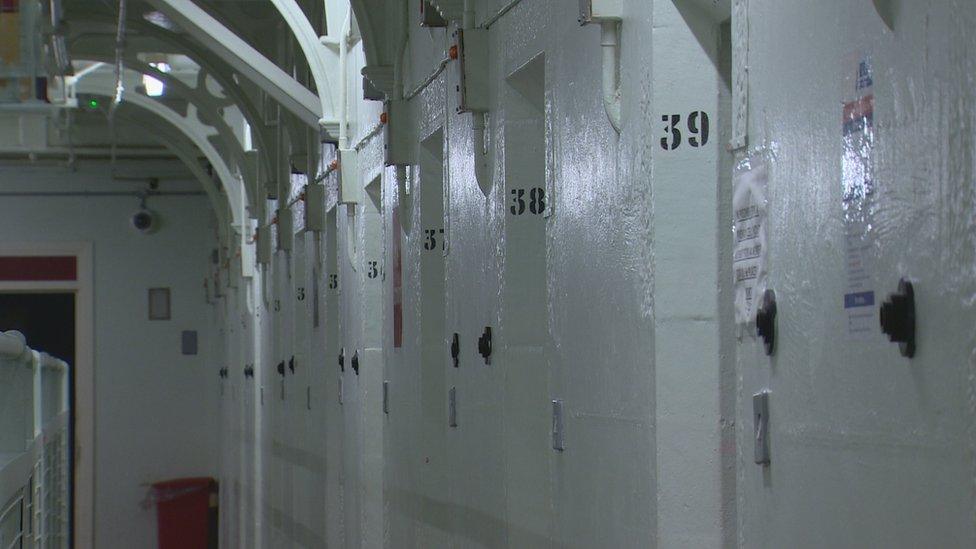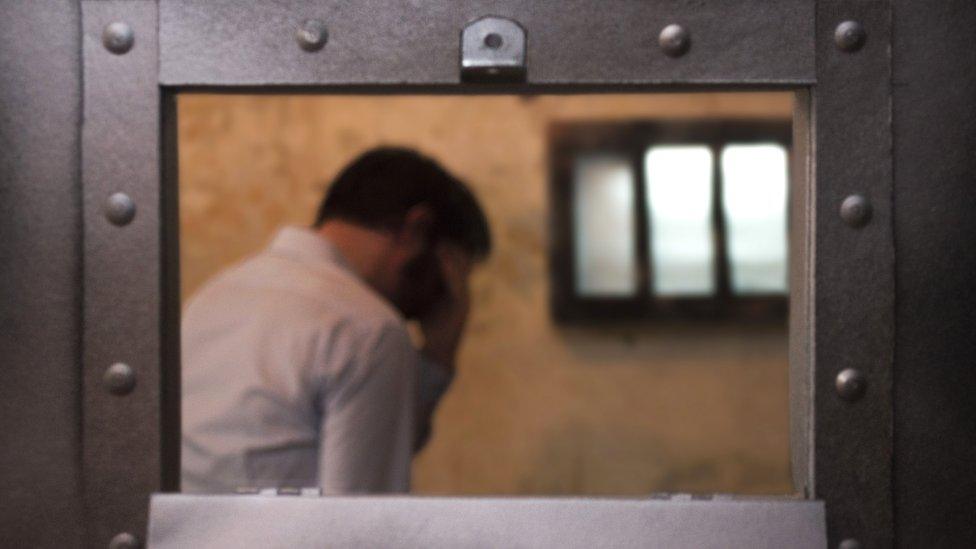How I beat drugs, violence and life in a Glasgow gang
- Published

Action for Children are rolling out a UK-wide programme to divert young men from organised crime
Jamie admits that his motivation for getting involved in gang activity was purely financial.
"Coming from a rough area where there was no money, you had to get it somehow," he said.
Raised in a Glasgow housing scheme, he had a fraught relationship with his stepfather and by the age of 14, was prone to violence and was on the verge of a drug habit.
He started selling cannabis before moving onto harder drugs for cash. Gang violence became part of the territory and eventually, Jamie - whose real identity will be anonymised - found himself in police custody.
But during a stint in prison, he made a decision that he claims saved his life.
'End up dead'
Jamie joined a programme run by Action for Children which aims to prevent children becoming indoctrinated into organised crime.
Through the charity's work, he met friends and mentors, was given immediate job opportunities and was assisted on a long-term career path.
Now 22, Jamie said that without the programme he would likely have returned to a criminal livelihood as soon as he walked free from jail. The project is now being rolled out across the UK.
He said: "I never really looked back on my life too much until I got the jail. I got to think 'what do I want to do with my life? Is this what I want to keep doing and end up dead, addicted to drugs or something worse?'
"So I started developing myself in jail - I did a lot of stuff in the gym, a lot of stuff with the army outreach, got my third year apprenticeship in joinery.
"A lot of young boys don't get the opportunity to realise their potential because they're in schemes - no outreach programmes, no help, no nothing."
He added: "I think they grow up and whatever their surroundings are they think that's going to be their surroundings for the rest of their lives, you can't get away from it."
'Jail saved my life'
Jamie found himself in a similar mindset from an early age. He hated school and the discipline that went along with it - he also found himself regularly using force to deter bullies.
After being expelled from two schools, he decided "school wasn't for me".
"From there on it was the streets and whatever you could to make a quick buck," he said.
"All the older boys at our scheme would give us all the stuff. We'd sell the drugs for them or they'd say something needs smashed up or they need this brought to them and we'd go do it for money.
"I was addicted to drugs - I was smoking a lot of cannabis, I was taking those fake valium and I was only a young age. There was only one other option - it was jail or dead and jail saved my life."

The charity has reached out to a number of young offenders who served time at HMYOI Polmont
Action for Children's Scotland director Paul Carberry said Jamie's life was one example of young boys who are identified as "good material" for gang operations.
He described them as "young people who may be violent, entrepreneurial thieves, they can keep their mouths shut, running drugs, theft to order, violence and intimidation on behalf of groups".
He added: "Most of our young people when we identify them are pro-criminal, come from pro-criminal families and they are trained not to trust people in authority - whether that's police or social work.
"Often these young people will spend the rest of their lives in custody, they will be murdered or will die using their own products."
Something to live for
The charity's Serious Organised Crime Early Intervention service, which has been running since 2013, has intensively worked with dozens of young people in Glasgow, diverting them from crime to education, training and employment.
It also employs peer mentors - young people who have successfully come through the programme who can relate to what children in schemes may be going through.
Having received £4.6m from the National Lottery Community Fund, Action for Children say they will deliver the project in Edinburgh from January and in Cardiff and Newcastle from April.
Jamie meanwhile works as a chef and is awaiting an interview with the Army, which he hopes will lead to a trade, a pension and a "normal" life.
Having lived clean for nine months he says he does not fear any relapse into gang living.
He said: "I still stay in the same surroundings, it's quite negative. Since I've been out I've been offered everything under the sun - to do this, take this - but I've turned my nose to it and kept my head straight.
"I think if you've got the right mindset I don't think it is a challenge but you've got boys who come out with nothing and they've got nothing to look forward to, I think it's a lot easier to get back in jail.
"But I've got two beautiful nephews and a wee niece who look up to me. I've got plenty of things to live for."
Scotland's justice secretary, Humza Yousaf, said that as well as diverting young people from serious organised crime the scheme could "deliver financial savings to hard-pressed public services to the benefit of all our communities".
He added: "The role of the peer mentors cannot be underestimated. By working with the young people and their families, the service has shown the positive opportunities that are available to the young people that can allow them to prosper."
- Published25 October 2017

- Published27 June 2019
